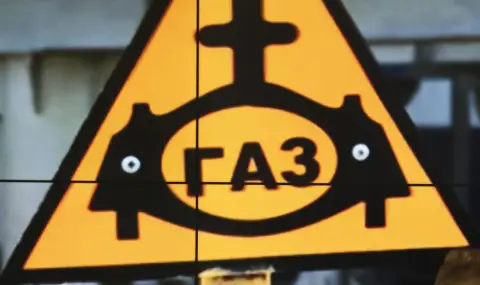Stale European industries are preparing for another gas price shock in the coming winter months. The reason is that colder weather is depleting supplies, competition with Asia for LNG is intensifying, and reduced Russian supplies will be a fact.
Since the energy crisis in 2022, when gas prices peaked at nearly EUR 350 per megawatt hour (MWh), dozens of companies across Europe have closed factories, cut operations and cut jobs as high gas prices undermined their competitiveness .
Many of them support reduced demand and lower manufacturing activity, which has negative implications for Europe's sluggish growth.
The demand for gas in the European Union is 17% below the average for the last 5 years, compared to the years before the pandemic. At the same time, gas prices are at their highest level in more than a year, and analysts predict they will rise further.
„The concern is that we are careful because energy prices are lower now than what we saw in 2022,” said Svein Tore Holsetter, chief executive of Oslo-based sheeter Yara (YAR.OL ).
„It is important to remember that we are still at much higher levels than other key regions such as the US, the Middle East and Russia," he added.
Jervousness over the expiration at the end of the year of a Russian transit deal to supply gas to Europe via Ukraine helped spur buying. Francisco Blanche, head of commodities and derivatives research at Bank of America, said this could push EU gas prices up to EUR 70/MWh in 2025. from nearly 50 EUR/MWh now.
Gas storage across the EU is 85% full, down about 10 percentage points from a year ago, according to Gas Infrastructure Europe. "A sharp cold snap would cause storage levels to fall faster than in the past two relatively mild winters," said Barbara Lambrecht, an analyst at Commerzbank.
To try to protect supplies, the European Commission last week increased its target for stockpiles, potentially increasing pressure on prices.
Dozens of factories in Europe have closed and nearly a million manufacturing jobs have been cut in the past four years, Bernstein data show.
In a report on Europe's competitiveness in September, former ECB chief Mario Draghi said the loss of relatively cheap Russian gas after the outbreak of war in Ukraine in 2022. has had a “huge price” for the economy and that fossil fuels will be needed at least until the end of the current decade.
„Although energy prices have fallen significantly from their peak levels, companies in the EU still face electricity prices that are 2-3 times higher than in the US. The prices paid for natural gas are 4-5 times higher, the report says.
Current EU prices are almost 5 times higher than US gas, which is trading at USD 3.095/mmBtu, equivalent to EUR 10.02/MWh.
A study by the German Chambers of Commerce (DIHK) found that high energy prices and a lack of reliable energy supplies are hampering industrial production and prompting some German firms to consider moving abroad.
Yara's CEO told Ag. Reuters that the company is “shifting its energy exposure away from Europe”.
German industry lobby group BDI cited high energy prices as the main factor threatening the competitiveness of Europe's largest economy. “The risk of deindustrialization due to silent migration and the abandonment of many small and medium-sized enterprises is constantly increasing,” said BDI president Siegfried Russwurm, who is also on the board of German industrial conglomerate Thyssenkrupp.
In France, industries expect to operate at 70-80% of their capacity this winter due to high energy prices, especially in the chemical sector.
„With the industry still at a standstill, there is no reason to believe that gas demand from this sector will return this year,” analysts at Rabobank said, adding that some increase in demand from the gas sector is possible the heating.
"Current EU storage levels, meanwhile, are around 10 billion cubic meters (bcm) lower than last year in absolute terms and the gap will be covered mainly by liquefied natural gas (LNG) imports," said Helge Haugane, head of gas and energy trading at Norway's Equinor, the EU's largest gas supplier. This will come at a cost as competition for available supplies intensifies.
Although the European Union has avoided imposing sanctions on Russian gas, which some members rely heavily on, it has curbed supplies of Russian LNG. Back in April, the European Parliament voted to adopt rules allowing European governments to ban Russian LNG imports, preventing Russian companies from reserving capacity for gas infrastructure.
This could increase withdrawals from storage and push the EU to compete more strongly with Asia for LNG from the US and the Middle East.
Europe imported 11.3 billion cubic meters, or about 170 cargoes, of LNG in November, mainly from the US and the Middle East, LSEG data showed.
